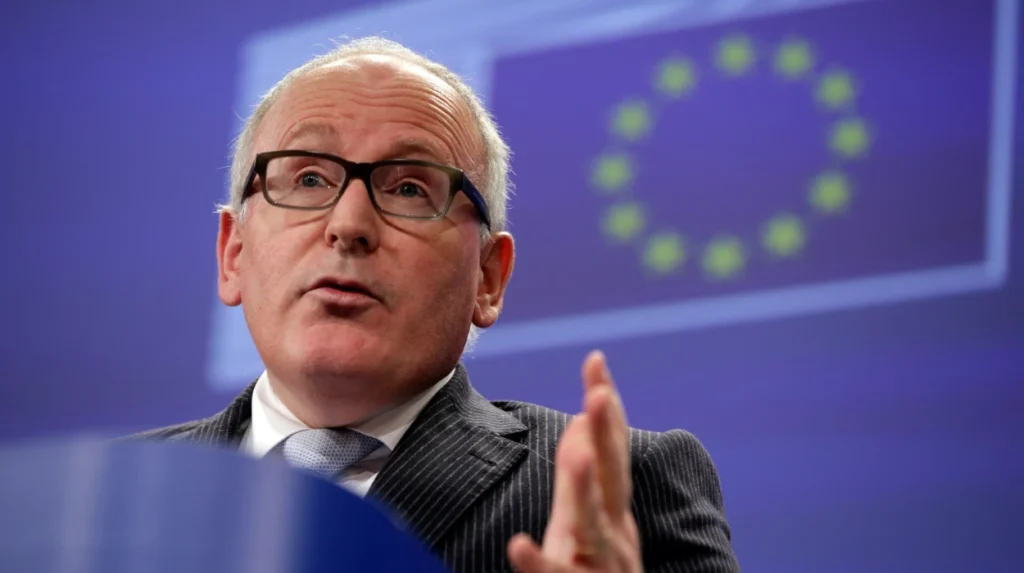The European Union (EU) is poised to undergo a profound transformation in how lobbying activities are conducted and perceived within its political institutions. With sweeping new transparency regulations recently introduced, significant reforms now require European Commission members, their staff, and senior officials to disclose all meetings and interactions with lobbyists. These measures promise to reshape Brussels politics by enhancing accountability, reducing undue influence, and building public trust in EU governance
Brussels has long been the focal point of EU policymaking but also a hotspot for lobbying efforts by corporations, interest groups, and foreign actors seeking to influence decisions. Historically, lobbying transparency has been limited, relying on voluntary registration and incomplete disclosures. However, the introduction of mandatory disclosure rules, chiefly mandating that all commissioners, their cabinets, and department heads publish details of their contacts with lobbyists, signals a new era of openness.
This article explores how the EU’s enhanced lobbying disclosure will change Brussels’ political landscape, the benefits and challenges of these reforms, and why increased transparency matters for democratic governance and international trust. The principles and statistics it draws upon reflect enduring governance standards affirmed by institutions like the OECD, Transparency International, and the World Bank.
The New EU Lobbying Transparency Framework
In November 2014, European Commission Vice-President Frans Timmermans announced comprehensive transparency reforms requiring commissioners and their offices to publicly disclose meetings with lobbyists. The reforms mandate that such meetings be limited to those whose names appear in an official, publicly accessible register, thereby legally institutionalizing lobbying transparency.
Beyond commissioners themselves, the reforms extend disclosure requirements to senior Commission officials and heads of departments an important broadening that tackles prior gaps where only limited personnel were subject to reporting. Additionally, the reforms aim to include documents related to politically sensitive negotiations, such as those on trade agreements, ensuring broader access to policymaking processes.
Impact on Brussels Politics: Increasing Transparency and Accountability
Raising the Bar for Political Integrity
By obliging key EU actors to declare lobbying contacts openly, the new rules aim to restore confidence damaged by past scandals, such as the so-called “Dalligate” tobacco lobbying controversy. Prior incidents revealed inconsistencies in lobbying disclosures and raised public suspicion about backroom dealings. Mandatory reporting creates a level playing field where all meetings are documented and accessible to citizens, watchdog groups, and media, significantly curbing the potential for undue influence.
Political actors will face higher accountability, as commissioners and officials risk reputational damage if found engaging in undisclosed interactions. The transparency overhaul thus acts as a deterrent against covert lobbying, promoting cleaner governance.
Enhancing Public Trust and Democratic Resilience
Transparency in interest representation underpins democratic legitimacy. According to Transparency International and OECD reports, informed citizens are more engaged and trusting of public institutions when the policymaking process is open. The reforms foster an environment where lobbying is recognized as legitimate advocacy rather than suspicion-laden favoritism.
The reforms also strengthen resilience against foreign interference in EU politics, a concern increasingly recognized amid geopolitical tensions. The 2025 EU Transparency Directive, for example, introduces mandatory national registers for lobbying activities by third-country actors, requiring disclosure of interest representation efforts originating beyond the bloc’s borders. This harmonized transparency framework deters manipulative influence, protects policymaking independence, and reassures Europeans about the integrity of their democratic processes.
Broader Implications for EU Policy and Trade Negotiations
The transparency rules obligate the Commission to publicize sensitive documents surrounding negotiations such as the Transatlantic Trade and Investment Partnership (TTIP). Enhanced access permits all Members of the European Parliament (MEPs) involved in legislative votes to scrutinize detailed policy information, supporting informed decision-making.
This shift is emblematic of the EU’s broader commitment to transparency and open dialogue in trade and regulatory affairs, signaling to international partners and constituents alike a dedication to accountability. Cecilia Malmström, former European Commissioner for Trade, referred to TTIP negotiations under these reforms as the “most transparent… we have had on trade,” underscoring their significance.
Challenges and Prospects for Effective Implementation
Despite these positive developments, challenges remain in realizing the full potential of disclosure reforms. Experts caution that transparency efforts should avoid merely shifting lobbying efforts to less regulated levels of government administration. Lobbyists might intensify engagement with officials not covered by disclosure rules, creating “shadow lobbying” environments.
Ensuring consistent enforcement across member states will also be crucial. National authorities must possess adequate resources and impartiality to maintain accurate registers, verify reported information, and sanction non-compliance. The creation of interconnected national registers integrated into a centralized EU portal aims to address these challenges by facilitating cross-border oversight and data sharing.
Moreover, the reforms must strike a balance between transparency and administrative burden. Smaller civil society organizations and grassroots groups should not be disproportionately impacted by registration requirements, ensuring democratic engagement remains inclusive.
The EU’s enhanced lobbying disclosure regulations represent a landmark step in transforming Brussels politics through greater transparency, accountability, and citizen engagement. By mandating public reporting of meetings with lobbyists and broadening coverage across senior officials, these reforms aim to deter undue influence and restore trust in European institutions.
While challenges in implementation and enforcement persist, the continued development of interconnected transparency registers and the inclusion of third-country lobbying activities herald a strengthened democratic process resilient to political manipulation and foreign interference. For the EU, these changes reflect a commitment to openness and good governance that will shape policymaking dynamics for years to come.







